Brown University also possesses a range of collections, libraries and centers pertinent to the study of archaeology and the ancient world. The University's location in the northeastern United States, in easy striking distance of Boston, New Haven and New York City, further expands the opportunities and options open to students of the Joukowsky Institute.
Resources
The Joukowsky Institute is fortunate to be surrounded by students and faculty in affiliated programs in the departments of Anthropology, Classics, Egyptology and Assyriology, Geological Sciences, History, History of Art and Architecture and Religious Studies, and in the programs in Judaic Studies and Early Cultures, whose research and resources provide many opportunities for collaborative courses, events and research.
Resources
The Joukowsky Institute is fortunate to be surrounded by students and faculty in affiliated programs in the departments of Anthropology, Classics, Egyptology and Assyriology, Geological Sciences, History, History of Art and Architecture and Religious Studies, and in the programs in Judaic Studies and Early Cultures, whose research and resources provide many opportunities for collaborative courses, events and research.
Archaeological Labs
Integrated Laboratory for Archaeological Sciences (ILAS)
The Integrated Laboratory for Archaeological Sciences (ILAS) was created in 2023 to facilitate research in the archaeological sciences, including, but not limited to, paleoethnobotanical, zooarchaeological, petrographic, and bioarchaeological analyses. The laboratory is shared between the Joukowsky Institute for Archaeology and the Ancient World and Brown University's Department of Anthropology.
The ILAS is located in Room 407 of the Medical Research Laboratory (MRL) building at 89 Waterman Street on the Brown University Campus.
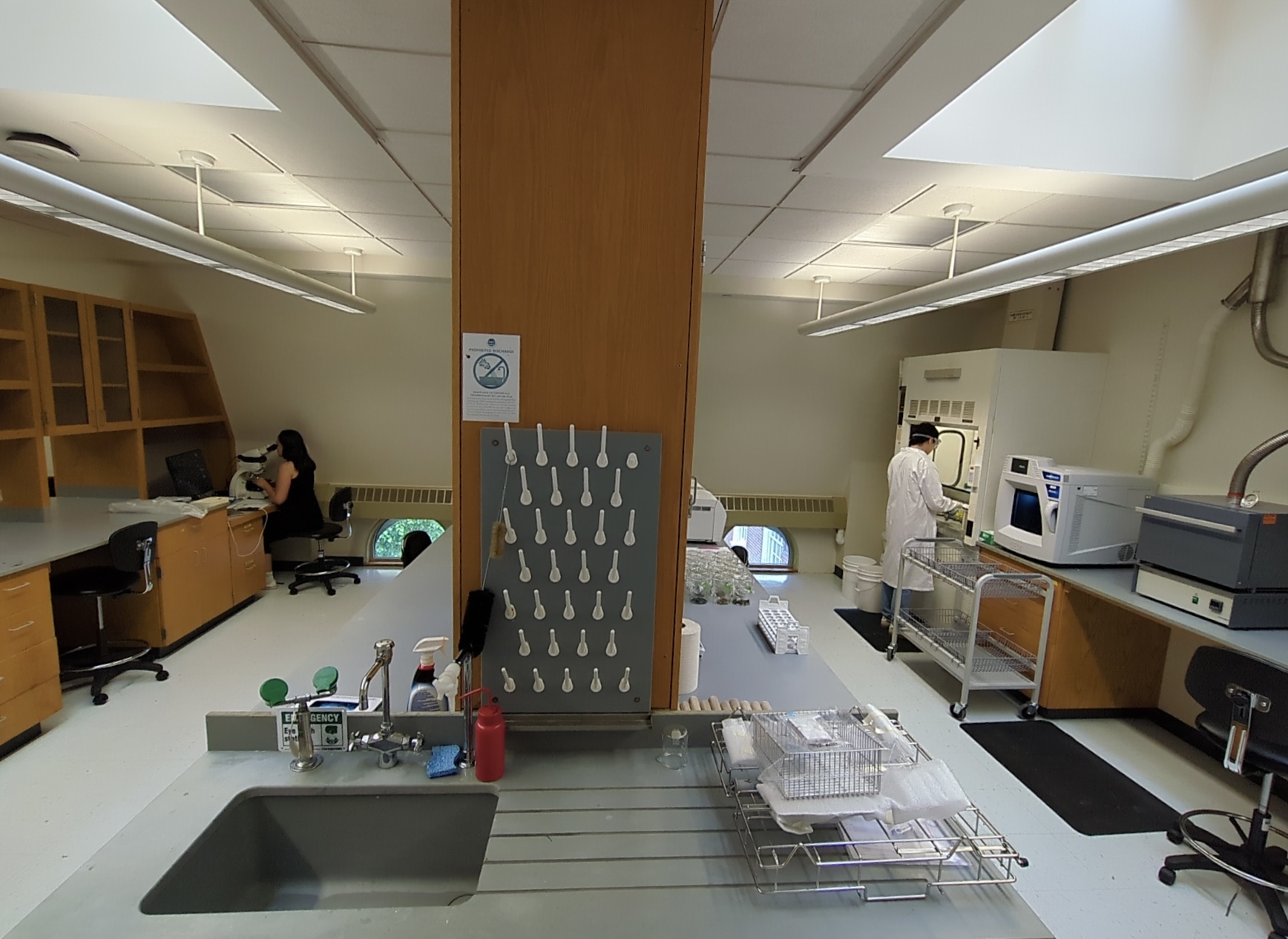
Paleoethnobotany Laboratory at Brown (PEBLab)
The Paleoethnobotany Laboratory at Brown (PEBLab), located in Giddings House at 128 Hope Street in Providence, was created in 2023 to facilitate research using paleoethnobotanical methods, including macrobotanical (carpological and anthracological) and microbotanical (phytolith and starch grain) analyses. Researchers at the PEBLab include faculty and students from Brown University's Department of Anthropology and the Joukowsky Institute for Archaeology and the Ancient World.
Research at the PEBLab focuses on foodways and ethnoecology. Research teams draw botanical residues from artifacts, teeth, and sediments to understand human-plant relationships in the historic and ancient past. Paleoethnobotanical research enables teams to pose new questions about human adaptations to climate shifts and human impacts on local environments over time. Researchers can also illuminate culinary practices and gastronomic traditions, using paleoethnobotanical methods to extract and analyze food residues.
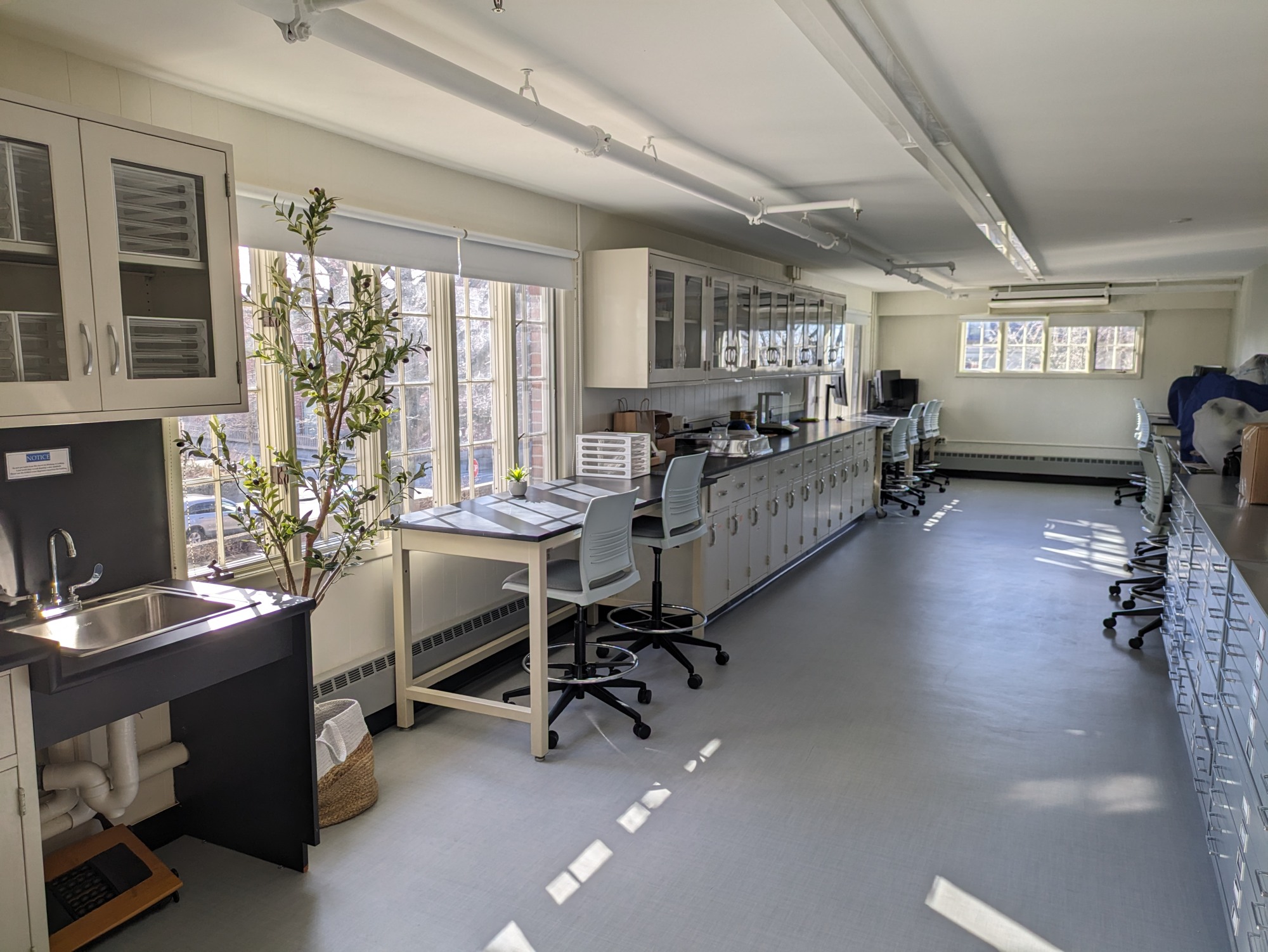
Digital Archaeology Laboratory
Brown University's Digital Archaeology Laboratory is a community of scholars working at the intersections of archaeology and digital practice. The lab was founded in 2016 as a center for teaching and research in archaeology and Geographic Information Systems, and lab members maintain core interests in that area. Members’ activities also extend to a broad range of other digital domains, including mobile technologies, photogrammetry, remote sensing, ground penetrating radar, machine learning, 3d visualization and digital collaboration. Across these domains, the lab members maintain a strong commitment to critical approaches and ethical practice.
To support the mission of the Digital Archaeology Laboratory, the JIAAW maintains a range of field and laboratory based technologies that are available for students and faculty to use, including a collection of GIS/digital modeling workstations, an enterprise drone platform, and a Proceq GS8000 Ground Penetrating Radar (GPR) system.
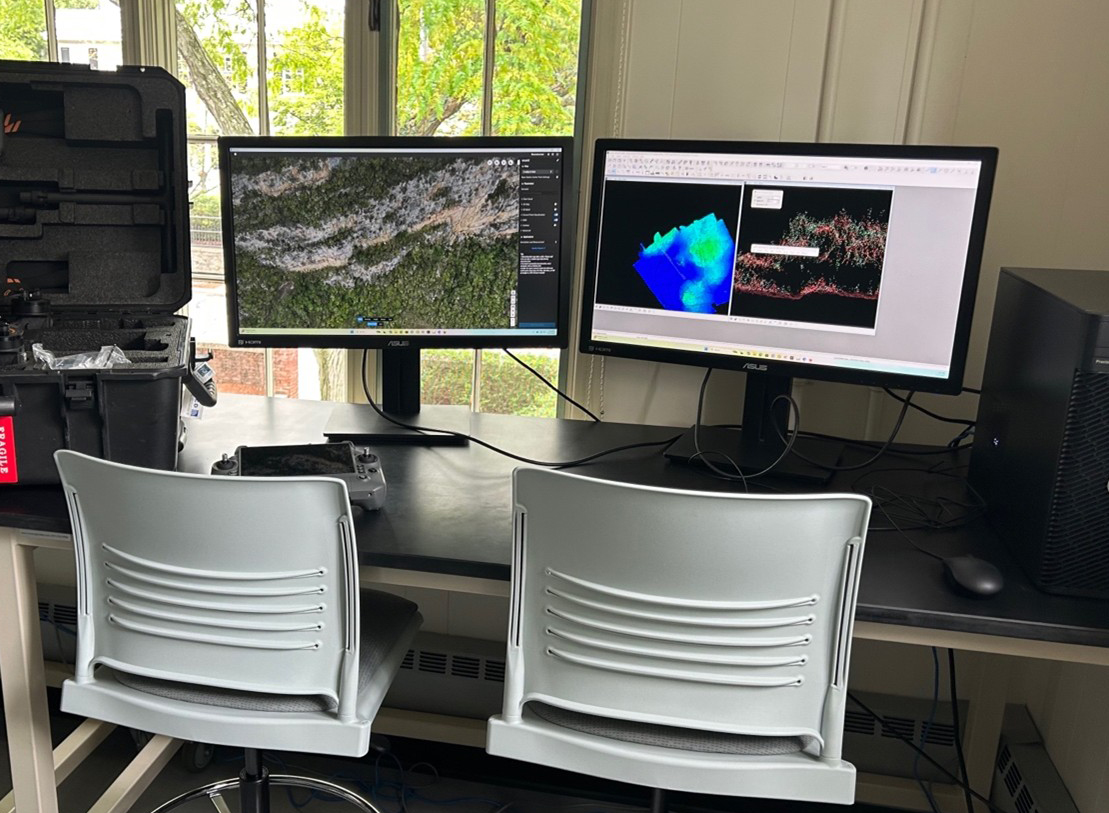
Historical Archaeology Lab
The Historical Archaeology Lab, in Giddings House at 128 Hope Street in Providence, houses the Cocumscussoc Archaeological Collection, an assemblage of 17th-early 20th century artifacts. Recent projects include a Point Count Analysis of the composition and distribution of petrographic inclusions under an optical microscope at 10x magnification to determine the origin of “Iberian” ceramics; water absorption and hardness tests of yellow “Dutch” bricks to assess their use; and a type-variety approach to the study of black-glazed earthenware ceramics recording wall thickness, paste and glaze colors with a Munsell Color Chart, and other attributes such as rim and base diameters with a radius chart to differentiate utilitarian and serving vessels. Cross-mending glass sherds, initiated in course research and continued during a department research apprenticeship, reassembled unidentified tablewares such as a pressed-glass salt cellar decorated with patriotic motifs and tumblers with molded “Gothic” panels like those on ironstone ceramics popular in the 19th century that added to the comparative value and knowledge of the collection.
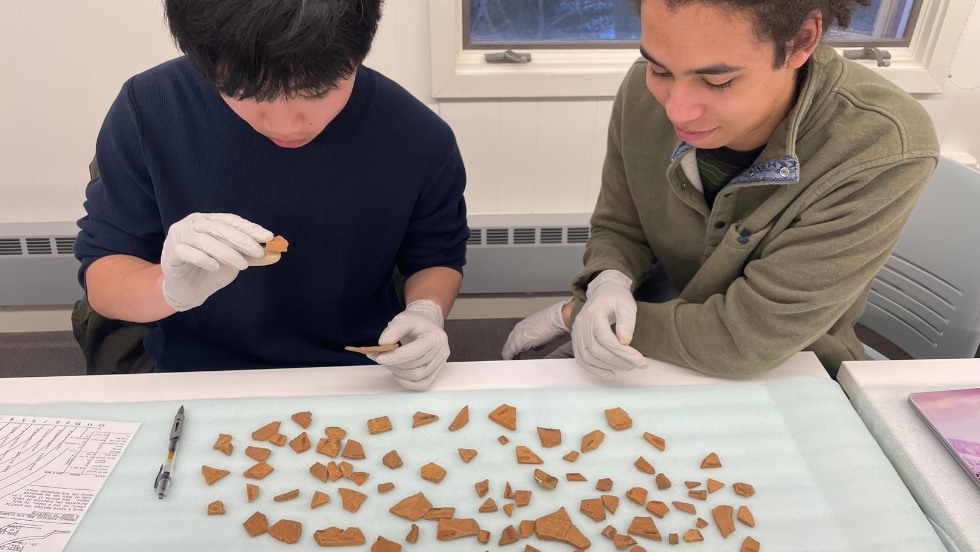
Museums and Collections
Brown University and Providence are just a short drive – in some cases, a short walk – away from some of the best museums in the world, and the Joukowsky Institute has built relationships with many of these institutions.
RISD Museum of Art
Two blocks away from the Institute, the RISD Museum houses collections of Greek, Hellenistic, Roman, Mesoamerican, Asian and African art, artifacts and coins. Multiple undergraduate and graduate students at the Joukowsky Institute have arranged internships working closely with RISD curatorial, conservation, and education staff – cataloguing objects, assisting with tours, giving lectures, planning gallery exhibitions, and preparing artifacts for display. The museum is also one of the founding partners – with the JIAAW and the Haffenreffer Museum – of Think Like an Archaeologist, and museum education staff continue to be active collaborators in offering this program for sixth grade social studies students in Providence Public Schools.
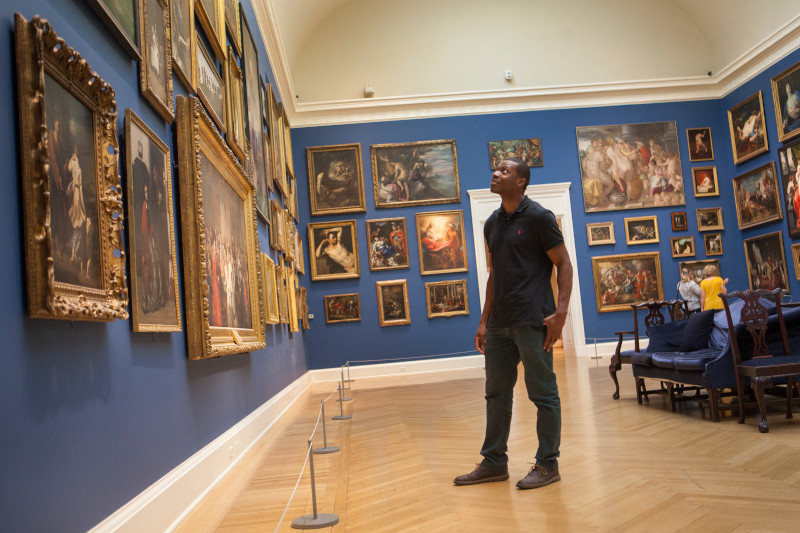
Haffenreffer Museum of Anthropology
Brown University’s museum of cultural history is in the process of relocating its collections and staff from Bristol, Rhode Island, to a newly renovated location at 1 Davol Square in Providence’s Jewelry District. In its new location, the Haffenreffer will continue to mount new exhibits regularly, including involving undergraduate and graduate student interns or volunteers in their planning and installation. In addition, it plans far more extensive opportunities for students, faculty, and members of the broader community to engage with its permanent collection of over 150,000 ethnographic and archaeological objects from all over the world.
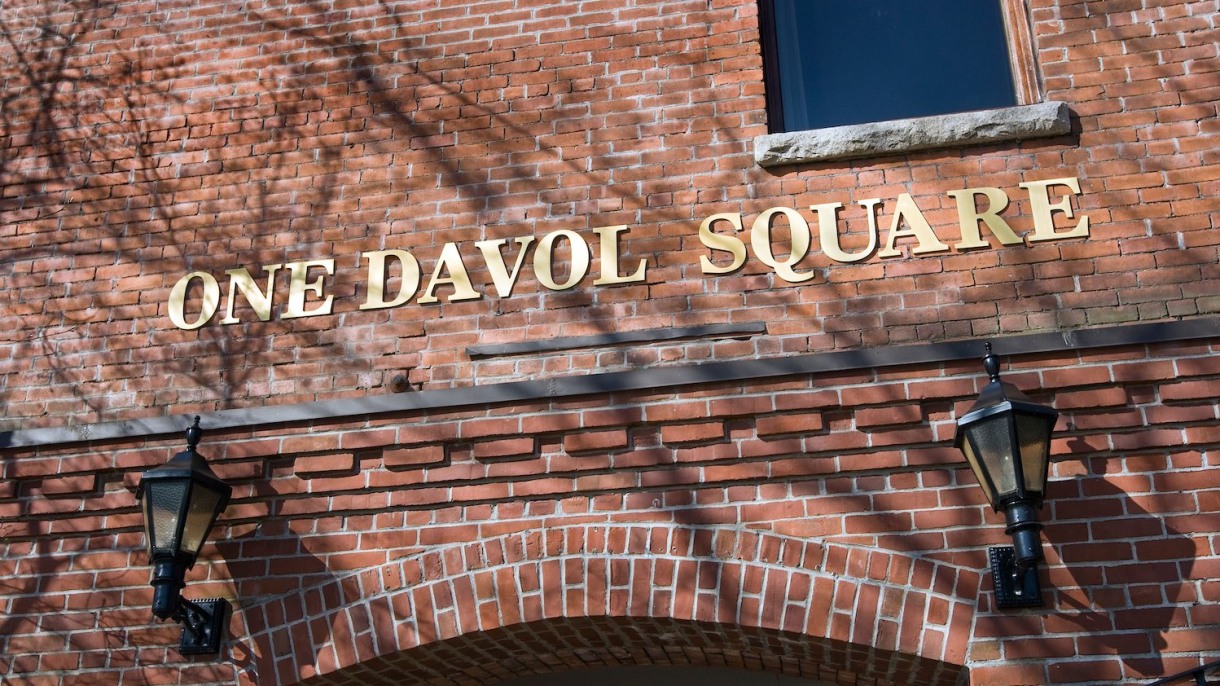
Museum of Fine Arts in Boston
Just 45 minutes away by car or commuter train, Boston is home to many museums including the Museum of Fine Arts (MFA), Harvard’s Peabody Museum of Archaeology and Ethnology, the Peabody Essex Museum and the Isabella Stewart Gardner Museum.
The MFA has recently offered the opportunity for students of the Joukowsky Institute to intern in their Art of the Ancient World Department. Working closely with curators, conservators and photographers, students are exposed to all aspects of museum work. While the internship at the MFA focuses mostly on the study of specific objects, researching the art and writing labels, it also offers a chance to give tours to groups of college students, to study the collection in depth, to examine the process of conservation and to learn about the planning, layout and construction of new galleries.
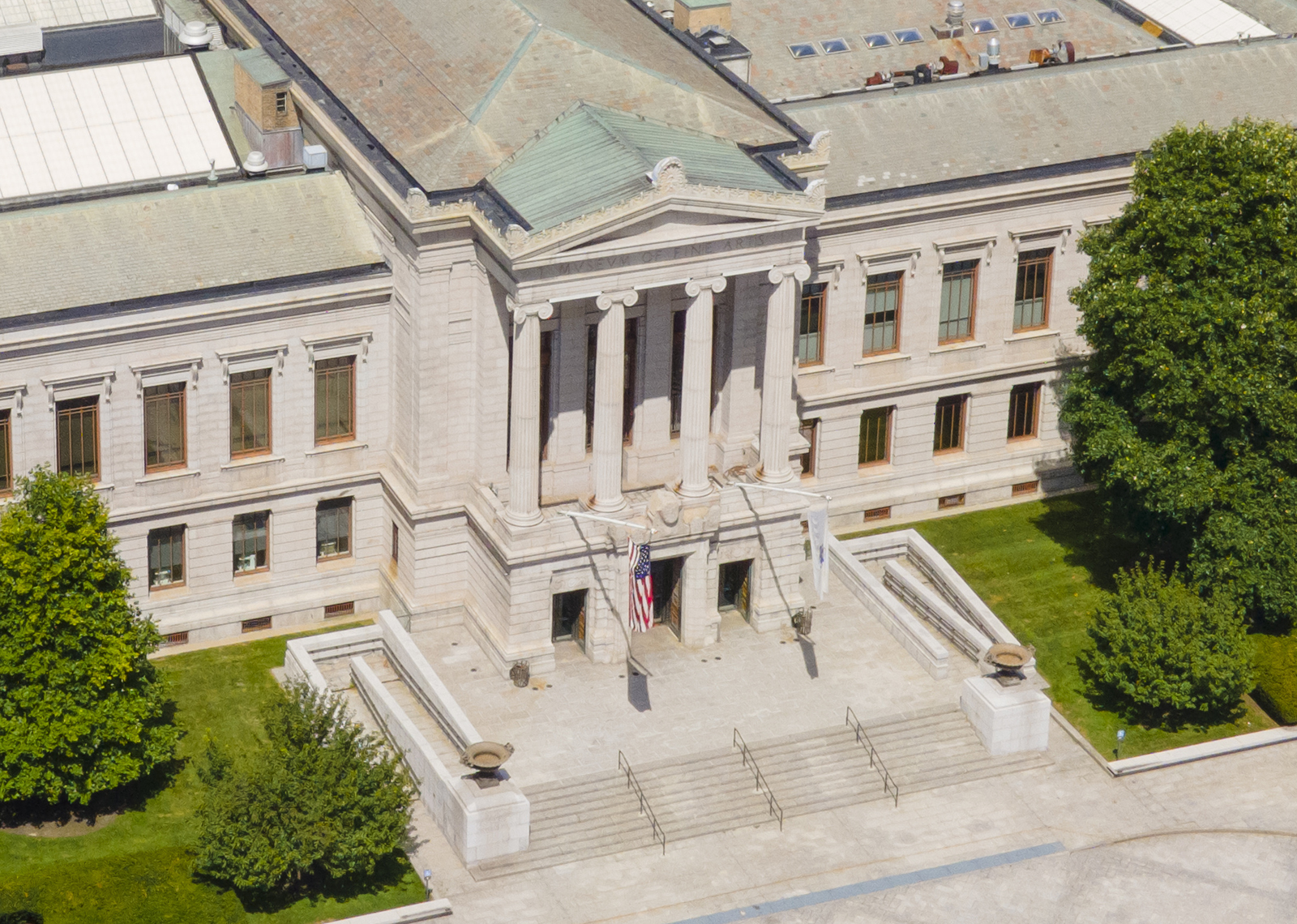
Mashantucket Pequot Museum
This museum is also just under an hour away from Brown, and is a newer complex that presents the histories and cultures of the Mashantucket Pequot and other Native American tribes, as well as the natural history of the New England area through a series of innovative presentations.
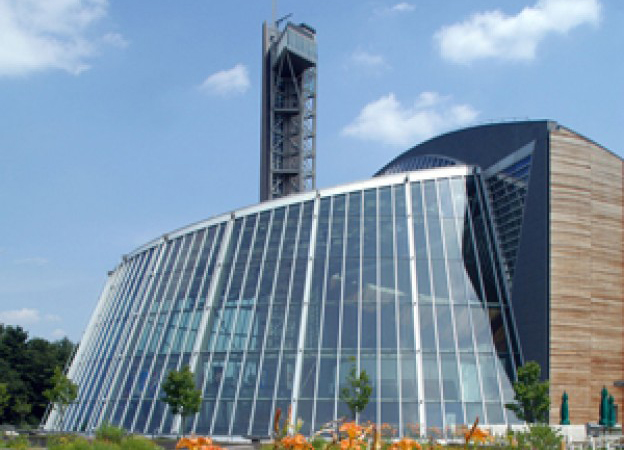
Worcester Art Museum
Under an hour away, the Worcester Art Museum is home to the largest and finest group of mosaics from ancient Antioch in America. Its collections also boast sculpture and decorative arts from ancient Egypt, Rome and Greece, an Asian collection that includes works in many media representing the major periods of Persian, Chinese, Indian and Japanese art, and a twelfth-century Romanesque Chapter House.
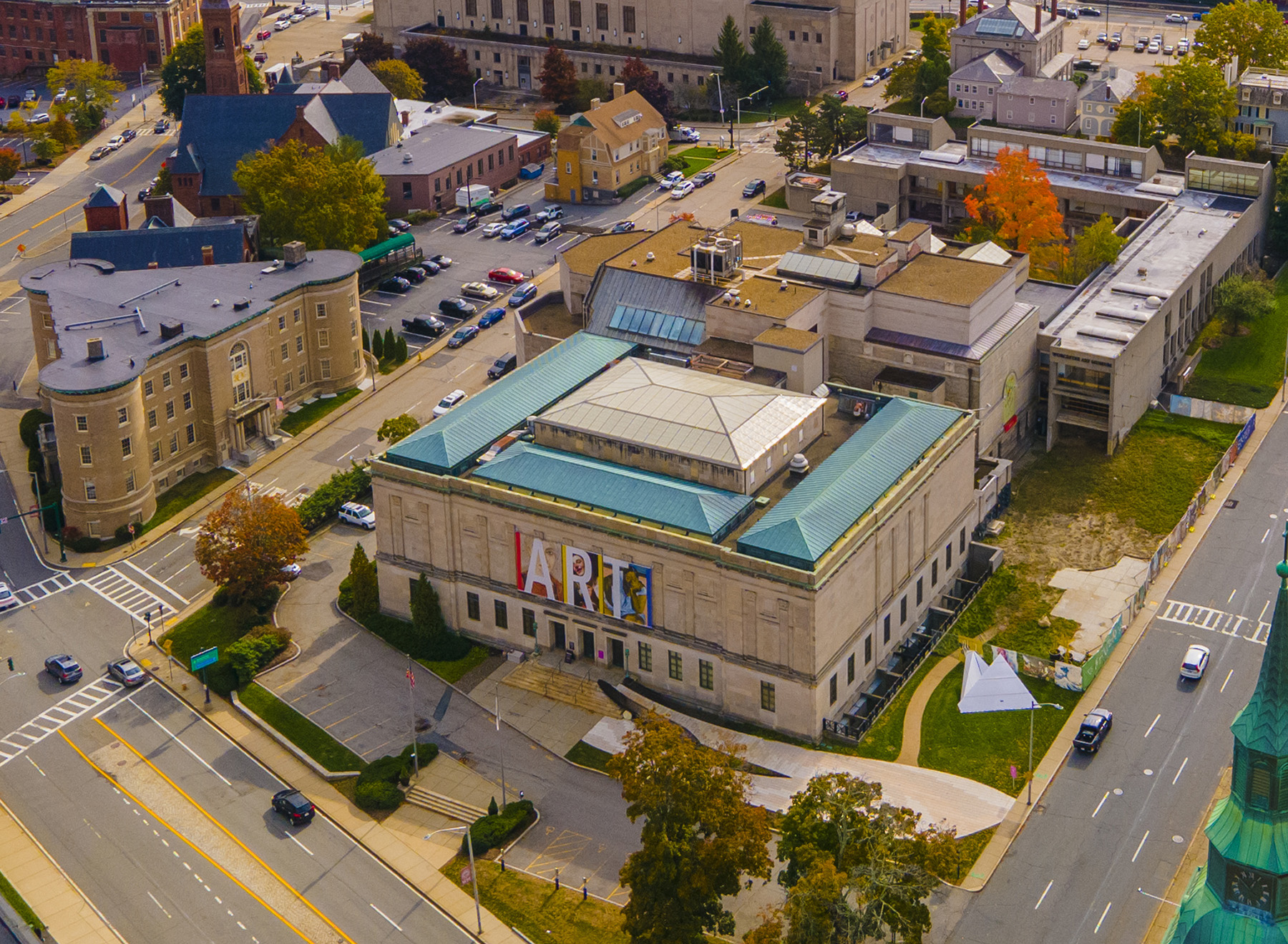
New York City and all its museums are slightly farther away – about 3 hours by car, bus, or train – but still easily accessible. Several Institute faculty members are affiliated with New York museums, including the Metropolitan Museum of Art where graduate students have held internships and other curatorial positions.
Related Resources:
Libraries and Centers
Archaeology Library at Rhode Island Hall
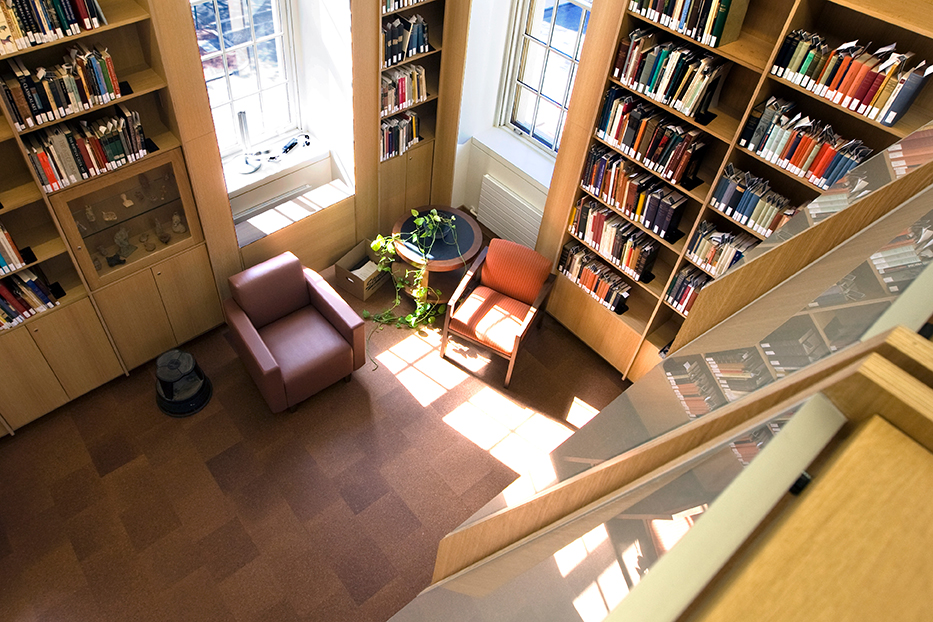 The Joukowsky Institute's library is a small, non-circulating collection of books relevant to the study of archaeology and the ancient world.
The Joukowsky Institute's library is a small, non-circulating collection of books relevant to the study of archaeology and the ancient world.
The library is accessible weekdays between 8:30 am and 5:00 pm. It is located on the 2nd Floor of Rhode Island Hall, at 60 George Street on Brown University's Main Green.
A catalog of this collection is available in the Reference section of the JIAAW library. A link to the catalog is available on request. JIAAW faculty, staff and doctoral students can access this catalog on the Useful Site (password protected).
In addition to the books in the Joukowsky Institute library, the library's list of online archaeology journals provides links to journals for which Brown's library system provides free online access.
More Brown Libraries and Centers
- Art Slide Library houses slides of art and art-related subjects
- The Cogut Center for the Humanities supports collaborative research among scholars in the humanities
- EARTHLAB provides students with geospatial data resources
- The John Carter Brown Library is an institution for advanced research in History and the Humanities
- The John Hay Library houses a broad range of special collections
- John Nicholas Brown Center for Advanced Study is Brown University’s center for the public humanities
- John D. Rockefeller, Jr. Library, known as “the Rock”, is Brown's primary teaching and research library for the humanities, social sciences, and fine arts
- Sheridan Center offers support and training for faculty, graduate students, and all members of Brown's teaching community
Brown University Online Resources
- Databases for Archaeology and the Ancient World: An annotated list of archaeology databases, compiled and maintained by Brown's libraries
- Geographic Information Systems (GIS) and Global Positioning Systems (GPS) Resources: Information on GIS services available through Brown's Earthlab, as well as tips on using ArcGIS, news of interest to GIS users, and links to other GIS resources on the web
- Online Archaeology Journals: A listing of journals to which Brown's library system provides free online access
- Resources for Writers: Essays, guides, references, and lists to aid students in the writing process, maintained by the Writing Center within Brown's Sheridan Center for Teaching and Learning
- Teaching Resources: Handbooks, workshops, links, and other tips for teaching in the university environment, collected by Brown's Sheridan Center for Teaching and Learning